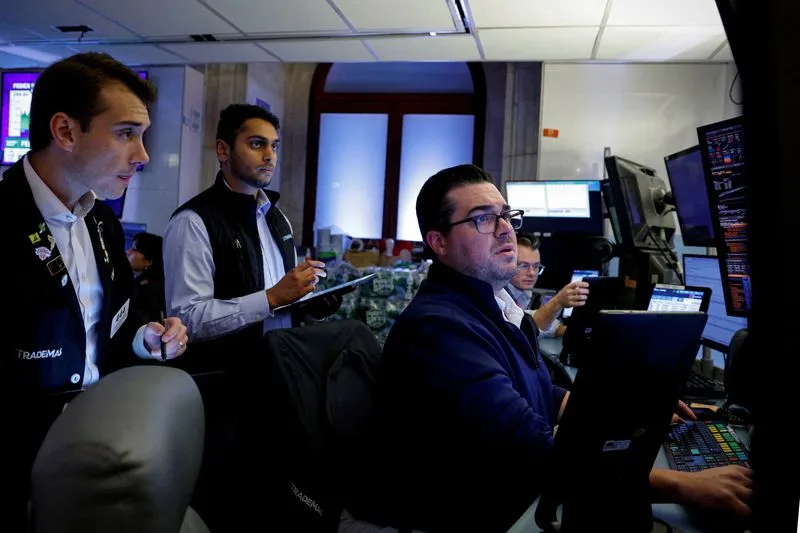
Wall Street is ramping up staffing in anticipation of election volatility as banks and brokerages prepare for potential market gyrations on November 5, regardless of whether Kamala Harris or Donald Trump wins.
Wall Street Ramps Up Staffing for Election Volatility
NEW YORK (Reuters) – Banks, brokerages, investment managers, and exchanges are adding staff to handle high trading volumes on and around Election Day, with election volatility expected as results come in.
Political events can trigger wild gyrations that can force market participants to quickly unwind bets, raising market, liquidity, and other risks that could pressure trading systems and market infrastructure.
Election Volatility and Uncertainty Heightened by Polls
With Democratic Vice President Kamala Harris and Republican former President Donald Trump neck-and-neck in many polls ahead of the Nov. 5 vote, the prospect of no immediate winner being clear is heightening concerns among investors and traders. There is also the risk of a contested election following Trump’s efforts to overturn his loss in 2020. Trump has indicated he might not accept the results of this election if he loses.
This election is seen as pivotal as Harris and Trump have markedly different views on policy that could have major implications for the economy, foreign relations, markets, and global trade.
Harris led Trump by a marginal 46% to 43% in a Reuters/Ipsos poll released on Tuesday, within the margin of error, while just seven battleground states are likely to be decisive in determining a winner.
Preparations for Increased Election Volatility
“We are preparing here from a market standpoint for at least a week of uncertainty, of not knowing who that president is,” said Grant Johnsey, regional head of client solutions for Capital Markets at Northern Trust.
“This just means ensuring we have sufficient coverage to handle more volume and volatility, managing vacation schedules accordingly, and that we are prepared for intraday ups and downs as election news unfolds,” he said.
Market participants are trying to make sure they are not caught off guard by surges in volatility. Recent surprises have included when Britain voted to leave the European Union in 2016, as well as when Trump defeated Hillary Clinton later that same year.
Staffing Adjustments to Handle Election Volatility
Ahead of the upcoming presidential election, one large U.S. bank is supplementing its global overnight team with a full trading desk in New York to handle the expected greater demand from clients, according to a source at the bank familiar with the situation.
This bank also plans to adjust staffing needs as necessary if a presidential decision is delayed.
Separately, a large retail brokerage is ensuring staff are on hand to respond to investor questions around-the-clock and is keeping tabs on social media sites such as Reddit for signs of anything unexpected, said a person familiar with the firms’ plans.
It has undertaken reviews of its systems to ensure they can cope with any sudden increase in either volatility or trading volume, said the person, who requested anonymity to speak about his company’s plans.
Preparing Systems for Potential Election Volatility
Chris Isaacson, chief operating officer at exchange operator Cboe Global Markets, said past volatility events such as the pandemic, the 2020 U.S. election, and, recently, the fallout from the yen carry trade, have tested the company’s systems.
“We build our markets to be able to handle at least two times the biggest peaks we’ve ever seen. So, we feel quite good about our resiliency and business continuity leading into the election,” he said.
Still, along with 24/7 staff, “we’ll have bolstered staff watching during the key hours here,” he said.
The Cboe’s Volatility Index, which tracks the stock market’s expectation of volatility based on S&P 500 index options, typically rises around 25% between July and November in election years, as investors weigh the market implications of candidates’ policy proposals, BofA data showed.
But the “election bump” in October VIX futures, which also encompass the Nov. 5 vote, has been smaller than in previous years.
NYSE and Nasdaq declined to comment.
Mitigating Risks from Election Volatility
Many in the market, however, are taking no chances.
A large U.S. broker-dealer is adjusting new hire training schedules and limiting any activities and meetings that take staff away from their phones, a source at the firm said.
For Joe Hoffman, chief executive officer at Mesirow Currency Management in Chicago, it will be crucial to have access to relationship banking as it can be “really important during times of stress” when liquidity might dry up on the screens.
Brian Hyndman, CEO of Blue Ocean Technologies LLC, whose automated trading system powers overnight trading for Robinhood and dozens of other brokerage clients, said he was prepared for increased trading and volatility but couldn’t predict in which assets.
“We’ll probably have more hands on deck than in a typical overnight session to address and resolve technical issues, and more management and support staff,” said Hyndman.
